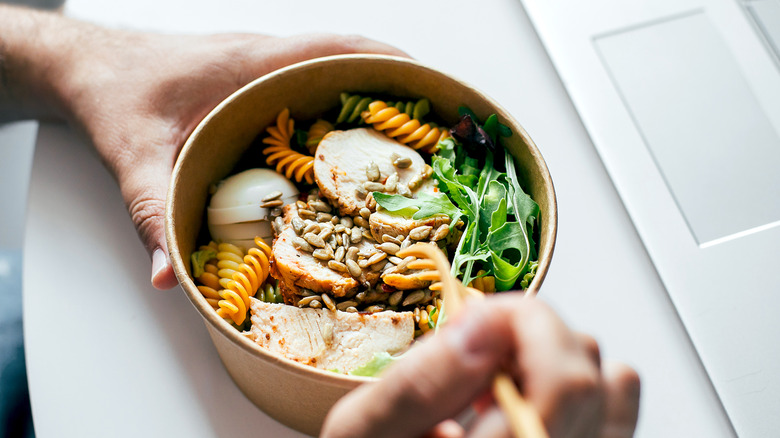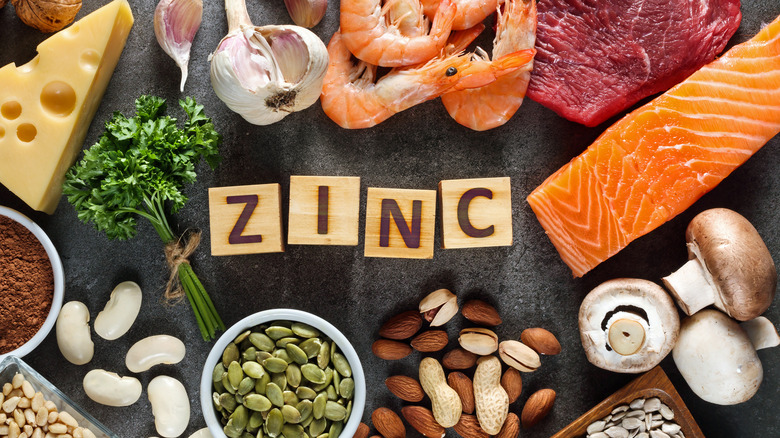Should You Eat More Protein After Surgery?
If you've ever wondered what you can and should eat after surgery, look no further. Because constipation is a common and uncomfortable side effect of surgery, it's important to eat foods that can help regulate your digestive system and soften your stools. According to Verywell Health, post-surgery constipation can reduce your appetite, which can lead to dehydration and malnourishment. It can also place pressure on your stitches if your incision is on your stomach area, which can lead to additional pain and discomfort.
Eating lean protein and avoiding red meat can help reduce and relieve constipation after surgery and make your bowel movements more regular, again (via Verywell Health). Fatty foods can cause stomach pain and disrupt your digestive process, leading to nausea and constipation. That's why it's important to eat proteins that are lean and low in fat. For example, poultry, pork, tofu, seafood, nuts, and legumes are all foods that are high protein and low in saturated fat.
Other foods to eat to relieve post-surgery constipation
Eating high-fiber foods also helps to ease constipation and stomach pain post surgery. According to Livestrong, fiber-rich foods both can help prevent post-surgery constipation and act as a laxative. However, eating too much fiber can actually be counterproductive. That's why you should stick to the daily recommended intake of 25 to 38 grams of fiber per day. Some excellent sources of fiber include pistachios, avocados, kidney beans, barley, and flaxseeds.
It's also important to increase your nutrient intake by consuming more vitamins and minerals, like zinc and vitamin C. That's because they can help aid in the healing process (via Livestrong). As it turns out, vitamin C has antioxidant properties, which can help reduce oxidative stress and fight off free radicals. This can help protect your cells from damage and disease. Vitamin C also may help facilitate collagen production, which is what your body uses to help make and repair tissues. Zinc, meanwhile, can boost your immune system while you're healing and help your body produce more proteins.


